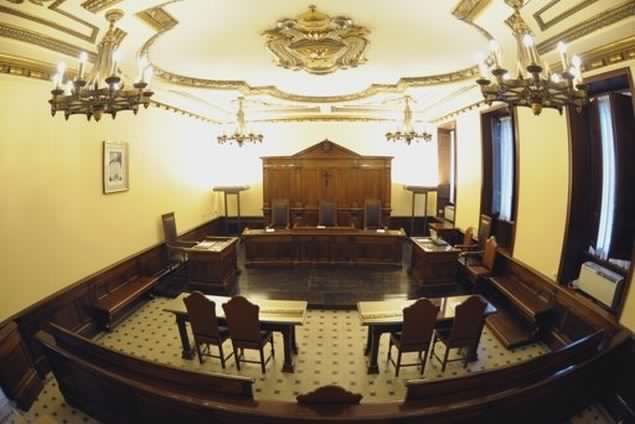On Thursday the Vatican announced a two-and-a-half-year prison sentence for a Roman construction magnate found guilty of confiscating and laundering more than $1.14 million from the Vatican bank.
Angelo Proietti, who owned and managed an Italian construction company called “Edil Ars,” was placed under house arrest in 2016 on charges of aggravated fraudulent bankruptcy.
At the time, police seized several accounts he held in the Institute for the Works of Religion (IOR), commonly referred as the “Vatican bank,” and Proietti was detained for allegedly siphoning off and pocketing some $9.1 million from his building and art renovation contractor company.
He was also accused of looting more of the company’s assets after it merged with another firm called Emiroma Srl, which, along with “Edil Ars,” declared bankruptcy in 2014.
In a Dec. 27 communique, the Vatican announced that Proietti had been given a 2.5-year sentence for “self-laundering,” marking the first time the Vatican has ever applied number 421-bis of the Vatican Penal Code, which deals with money-laundering and the financing of terrorism.
The law was developed as part of a financial reform process spearheaded by the Financial Information Authority, known as the “AIF,” which is currently headed by Swiss anti-laundering expert René Brülhart.
Proietti’s house-arrest in 2016 was at the time touted as proof that the new systems for financial transparency adopted under Francis were working, and Proietti’s sentence will likely be seen as further step in the clean-up process.
Earlier this year the Single Euro Payments Area (SEPA), a payment-integration initiative of the European Union for simplification of bank transfers denominated in euro, recognized the Institute of Religious Works (IOR), also known as the “Vatican Bank,” as a “domestic bank,” meaning it has now received a European routing number and its own IBAN for wire transfers within the domestic European zones, significantly reducing the cost of each transfer for clients, mostly Catholic institutions and religious orders.
In 2017 Italy put the Vatican on its “white list” of states with cooperative financial institutions, and last December Moneyval, the monitoring body of the Council of Europe, issued a mostly positive evaluation of the Vatican’s efforts toward transparency, essentially stating that the Vatican’s penal laws were good but needed to be applied.
Proietti’s jail sentence thus is likely to be hailed as another sign that the Vatican is slowly moving closer to compliance with contemporary Western standards.

